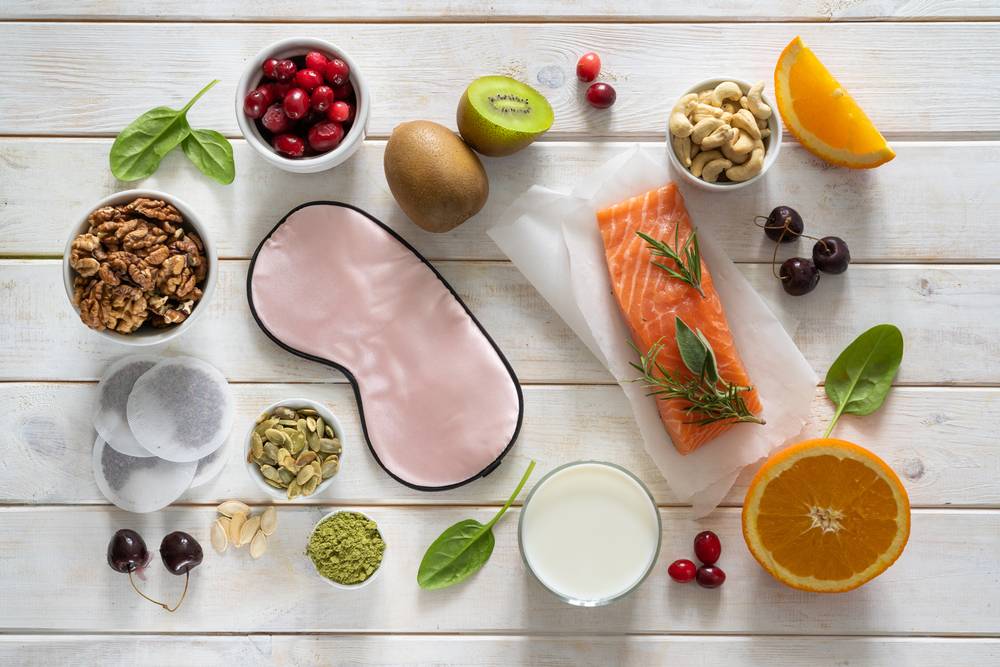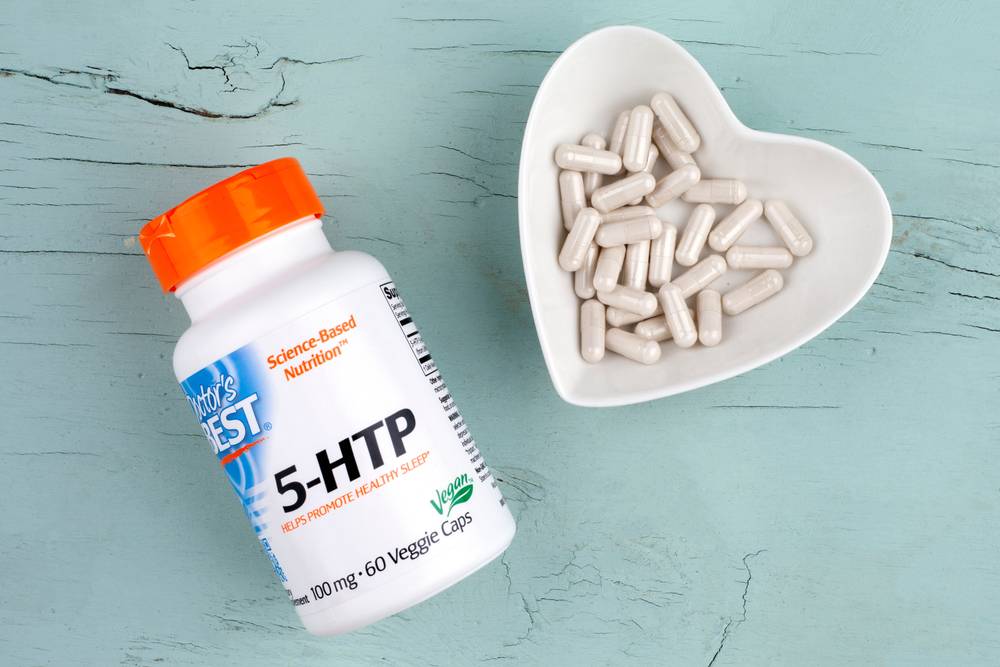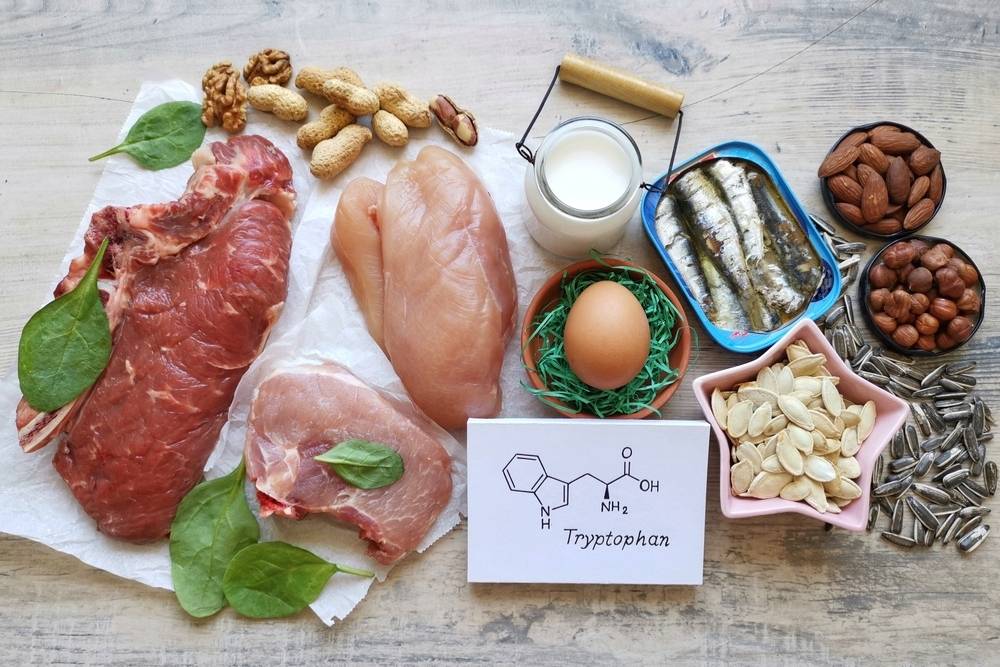Ever felt drowsy after a hearty meal? Tryptophan might be the key player in this post-dinner slump.
What exactly is tryptophan, and why does it make us savour the thought of crawling into bed and drifting away?
What Is Tryptophan?
You may have heard of tryptophan in discussions about “food comas,” especially during festive feasts. However, its benefits extend beyond holiday indulgence.
Tryptophan is an essential amino acid that contributes to the production of serotonin, an important neurotransmitter that influences a variety of bodily functions, including mood and sleep. This chemical reaction not only makes you feel calmer, but also signals to your brain that it is time to rest.
Moreover, serotonin is further converted into melatonin, a hormone famously known for regulating our sleep-wake cycles. This natural biochemical process explains why tryptophan-rich foods can have such a calming effect, helping us feel relaxed and ready for bed.
Research has also shown that tryptophan contributes to both the quality and quantity of sleep, making it an important element in a restful night.
Why Do Festive Meals Make Us Sleepy?

Our bodies don’t produce tryptophan, it can be conveniently found in a wide variety of foods. This includes dairy, nuts, fruits, vegetables, and meats like the eponymous festive turkey. During the holiday season, larger portions and rich meals amplify its effects.
The celebratory meals and treats available during this period encourage us to consume larger amounts of food in general.
“Carbohydrates enhance the absorption of tryptophan,” elaborated Dr Ng Lok Pui, a Family Physician at SingHealth Polyclinics and Director of Regional Clinical Services (East), in The Straits Times.
This then increases the level of serotonin and melatonin our bodies produce.
As a result, meals rich in both protein and carbohydrates – like a traditional Christmas dinner – can lead to increased serotonin and melatonin levels, resulting in the infamous “food coma.”
Incorporating Tryptophan Into Our Sleep Routine
While enjoying a heavy meal on occasion is all well and good, overeating shouldn’t be the path we take towards our goal of getting more rest.
Regularly include foods like turkey, chicken, eggs, cheese, tofu, nuts, seeds, and oats in your meals to get the benefits of this calming amino acid.
Consider adding a bedtime snack to enhance your sleep – a warm glass of milk before bed is a classic choice. It is rich in tryptophan and soothing to the digestive system. Pair it with a small portion of whole-grain crackers or a banana for an added carbohydrate boost to enhance absorption. Be sure not to drink too much however, as you will disrupt your sleep if you have to wake up to use the restroom in the middle of the night.
Tryptophan Supplements

For those struggling with persistent sleep issues, tryptophan supplements might offer additional support. In fact, studies suggest that tryptophan can help in the treatment of sleep disorders like sleep apnoea and insomnia due to the part it plays in raising serotonin and melatonin levels, although research into the efficacy of supplementation is still ongoing.
Tryptophan supplements are usually found in the form of L-tryptophan, or the intermediate metabolite 5-Hydroxytryptophan (5-HTP).
Tryptophan supplements can be used in doses up to 5 grams daily to promote serotonin production.
However, if you take tryptophan directly, your body may prioritise its use in other processes like protein synthesis or niacin production, rather than serotonin and melatonin creation. For this reason, 5-HTP supplements may be more effective for some individuals.
5-HTP converts to serotonin faster than tryptophan and may offer additional benefits, such as reducing food intake and supporting weight management. Typical 5-HTP dosages range from 100 to 900 mg daily.
With all supplements, be sure to consult with a healthcare professional to determine if supplementation is suitable for you. This is especially because tryptophan can come with a few side effects we should be aware of, including fatigue, headaches, and gastrointestinal issues like nausea and stomach pain.
Embracing the Benefits of Tryptophan For Sleep
Prioritising your sleep is key to maintaining optimal health and productivity. Whether through dietary sources or supplements, aligning your choices with your specific goals – be it better rest, enhanced mood, or weight management – can help you harness the benefits of these compounds.
Always consult a healthcare professional to tailor these approaches to your individual needs, ensuring safe and effective outcomes.

